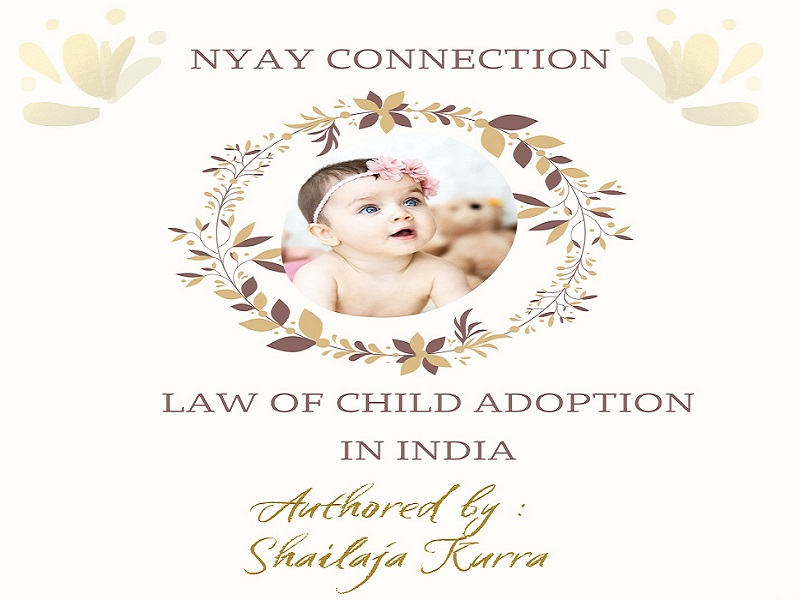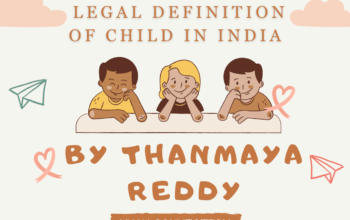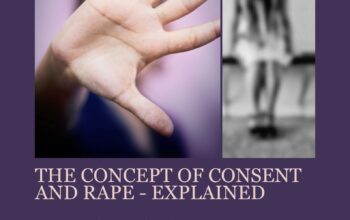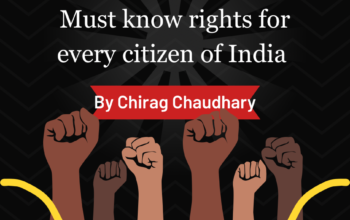ADOPTION
Adoption is the legal process by which an individual or a couple becomes the legal parent(s) of a child who is not biologically related to them. This can happen when the biological parents are unable or unwilling to care for the child, or when the child is abandoned or orphaned.
Adoption is a complex legal process that involves the termination of the biological parent’s rights and the transfer of those rights to the adoptive parents. Once the adoption is finalized, the adoptive parents become the child’s legal parents and have all the rights and responsibilities that come with that role.
HISTORY OF HINDU ADOPTION LAW
The concept of adoption has been an integral part of Hindu culture and society for centuries. The Hindu law of adoption has evolved over time and has been influenced by various religious and social factors.
The earliest recorded instances of adoption in Hindu society can be found in ancient Hindu texts, such as the Vedas, the Puranas, and the Manusmriti. These texts provide guidelines for adoption and mention the practice of adopting a son to continue the family line and perform ancestral rituals.
In the medieval period, the practice of adoption became more widespread, and the Hindu law of adoption began to take shape. The first comprehensive legal text on adoption was the Mitakshara, written in the 12th century by Vijnanesvara, a Hindu jurist. The Mitakshara laid down rules for the adoption of sons and daughters and emphasized the importance of continuing the family line.
In the 19th century, British colonial rule in India led to the codification of Hindu law. The British passed the Hindu Adoption and Maintenance Act in 1956, which provided a uniform code for adoption and abolished the distinction between the adoption of a son and a daughter. This law allowed childless couples to adopt children and also permitted the adoption of children by a widow or a divorced person.
In 2010, the Hindu Adoptions and Maintenance Act was amended to remove discriminatory provisions and ensure that the rights of adopted children were protected. The amended law now allows a single person to adopt a child, regardless of gender and recognizes the adoption of children by Hindus living outside of India.
RULES AND PROCEDURE LAID OUT IN THE HINDU ADOPTION AND MAINTENANCE ACT 1956.
The process of adoption among Hindus in India is governed by the Hindu Adoption and Maintenance Act, 1956. According to this law, any Hindu male or female who is of sound mind and is not a minor can adopt a child. However, if the adoptive parent is married, their spouse must also give consent to the adoption.
- Eligibility: The couple must be Hindu, and both partners must be of sound mind and have completed 18 years of age. The couple must also have been married for at least five years, or if they have already adopted a child, then three years.
- Consent: The couple must obtain the consent of each other before proceeding with the adoption process. If the couple has any living children, they must also obtain their consent.
- Application: The couple must submit an application to the court or adoption agency, providing their details and reasons for wanting to adopt a child. The application must also include the child’s details and the reasons why the child is being given up for adoption.
- Investigation: The court or adoption agency will investigate the couple’s suitability to adopt a child, including their financial, social, and emotional stability. The agency will also investigate the child’s background and health status.
- Selection of a child: Once the couple has been approved for adoption, the agency will match them with a child who is eligible for adoption. The couple can also specify their preferences regarding the age and gender of the child.
- Legal Process: The couple must file a petition for adoption in court, which will review the adoption and issue an adoption order if everything is in order. Once the adoption order is issued, the couple becomes the legal parents of the child.
- Registration: The final step in the adoption process is to register the adoption. Once the adoption is registered, the child’s name is changed to reflect their new family name. Registration of an Adoption Deed is not compulsory as it is not covered under section 17 of the Registration Act which documents mandatorily require registration. However, for the convenience of both the parties, it is advised that the adoption deed be registered.
The process of adoption among Hindus in India is guided by Hindu adoption laws, which are governed by the Hindu Adoption and Maintenance Act, of 1956. While the process of adoption is not very common, it is still a recognized way to carry on the family lineage and provide a better life for children who may not have biological parents to care for them.
HERE ARE SOME MORE KEY ASPECTS OF THE ADOPTION PROCESS AMONG HINDUS IN INDIA:
- Who can adopt: Under the Hindu Adoption and Maintenance Act, any Hindu male and female who is of sound mind and is not a minor can adopt a child. If the adopter is married, his spouse must also give consent to the adoption. However, a female Hindu can only adopt a child if she is unmarried, divorced, or widowed.
- Who can be adopted: The child to be adopted must be a Hindu and must not have been previously adopted. The child must be below the age of 15 for a male Hindu to adopt and below the age of 18 for a female Hindu to adopt. The adoptee must also not be related to the adopter within certain prohibited degrees of relationship.
- Legal procedures: The adoption process must be done through a registered deed, which is executed by the biological parents or guardians of the child and the adopter. The deed must be attested by two witnesses and registered with the concerned Registrar of Assurances. Once the deed is registered, the child becomes the legal child of the adopter, and the biological parents or guardians lose all parental rights over the child. Section 17 of the Registration Act particularly refers to the documents that require registration. The adoption deed is not one of the documents stated in sub-section 1 of Section 17 that must be registered. Hence Registration is not mandatory.
- Rights and Responsibilities: Once the adoption is complete, the child has all the rights and privileges of a natural-born child of the adopter, and the adopter has all the responsibilities and obligations of a parent. The adopter must provide for the child’s maintenance, education, and upbringing, and the child is entitled to inherit the adopter’s property.
JUDICIAL PERSPECTIVE ON ADOPTION:
AIR 2015 Raj 105 Darshana Gupta vs. None and Others
Held, When the child to be adopted is an orphaned, abandoned, or surrendered child, or a child in need of care and protection as defined in the Juvenile Justice Act, the bar imposed by Sections 11 (i) and (ii) of the Hindu Adoption and Maintenance Act does not prevent the Hindu from adopting the child of the same gender. Acts were liable to be construed harmoniously in the altered social environment to enable rehabilitation and social reintegration of orphaned, abandoned, and surrendered children – hence, the adoption of the minor girl to the Appellant was deemed maintainable.
CONCLUSION:
Adoption laws in India have been modified to make the process more regulated and formal. The Hindu Adoption and Maintenance Act, of 1956 governs the process of adoption among Hindus in India. The act lays down rules for the adoption of children by Hindus and regulates the maintenance of family members dependent on the adopting parents.
In recent years, there has been a growing trend towards open adoption and the recognition of the rights of adopted children to maintain contact with their biological parents. Hindu law is evolving to keep pace with these changes and to ensure that the best interests of the child are always the primary consideration in any adoption.
Shailaja is a 4th year law student from Padala Rama Reddi Law College, Hyderabad. For feedback relating to this article, she may be reached at shailajakurra3120@gmail.com.
If you are also a law student or legal professional and wish to contribute to the website, you may send your submission at nyayconnection@gmail.com.




